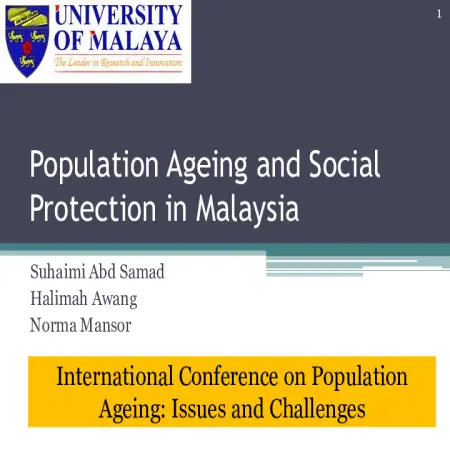| Item type |
Conference or Workshop Item |
| Subjects |
300 Social sciences > 303 Social processes |
| Division/Agency |
LPPKN - National Population and Family Development Board, Malaysia: Population and Family Research Division |
| Keywords |
Social protection, Elderly, Population, NPFDB, Malaysia |
| Additional Information |
Authors is from University of Malaya. |
| Abstract |
With rapid increase in number of older persons, Malaysia is faced with multitude issues of graying population resulting from declining birth rate and rising life expectancy. In 2010 4.7% of the population was above 65 years old and the life expectancy was 71.7 years for males and 75 years for females. The New Economic Model for Malaysia (NEM) 2010 defines inclusiveness, high income and sustainability, as the three prong objective towards a developed nation in 2020. The underlying principle of the inclusiveness objective is to enable every Malaysian to have access to opportunities in order to contribute to the economy and to ensure that essential needs of the people are met. At least ten policy measures were recommended to improve the well being of the bottom 40% of the population, which has been identified as underserved. The question is, to what extent is the existing social safety net policy adequate to support every Malaysian to sustain a decent living? What are the issues and gaps with social safety net for older people? This paper attempts to answer these questions and to examine other related issues. It is divided into three parts: the first parts is an assessment of the existing social safety net in Malaysia; the second part looks at some case studies of NGO’s working with the older people and the final part offers some policy recommendations as a way forward. |





